The Year I Survived a Volcanic Eruption
I work as a teacher in a Christian school on the island of Tonga, where people are used to natural disasters. Although we plan for the cyclone season every January till March, nothing prepared us for what happened on January 15, 2022.
Three weeks before that fateful day, I was driving along the scenic waterfront road of Nuku’alofa (Tonga’s capital). Gazing out to sea, I was surprised to see a massive column of white-grey clouds spreading out from the horizon.
I didn’t know it then, but it was the beginning of the Hunga-Tonga Hunga-Ha’apai (HTHH) eruptions. At that point, there was no sense of danger at all. Living on the Pacific Rim of Fire, people are accustomed to volcanic activity and earthquakes.
2022 arrived and a marine tsunami warning was issued for January 12 and 13 due to increased volcanic activity, and people were advised to stay away from coastal areas. But the warning was lifted the next day, so I headed into town to prepare my classroom for the new teaching year.
When I stepped outside that morning, I was greeted by the smell of sulphur. Soon after, we were advised to leave schools and close shops to head back home or retreat inland.
Again, the warning was lifted that evening. Without worry, I returned to town with a friend, and we ate ice creams while watching the volcano’s magnificent display of loud booms and lightning strikes.
Things took a sharp turn
January 15 started out nicely despite chronic back pain I had been battling with. I did some grocery shopping and prepared for a friend’s birthday party in the afternoon.
At about 5.20 pm, I was dressed and waiting for my friend to pick me up when suddenly, a massive shock wave ripped through the house. My ears started to ring and glass windows were bending from the pressure.
Expecting the windows to smash, I flung the door open to release some pressure before a deafening rumble shook the house, followed by another shock wave that caused me to go temporarily deaf. I immediately ducked into an alcove in the hallway with my phone. The only thing I could hear was my pounding heart and the ringing in my ears.
Within 10 minutes, everything went pitch black. Ash and debris began falling from the sky. I was frozen in fear, unsure if it was safer inside or out. At this point, the internet was still working, and I managed to contact my friend who was driving to get me. Grabbing my passport, some clothes, cash, food, water, and a torch, I waited—every second felt like it could be my last.
My friend finally arrived, and we ran through falling ash to load the car before joining the evacuation queue. The car soon ran out of water and the wipers couldn’t clean the thick, ash-coated windshield. To see what was happening, my friend had to drive slowly with her head out the window. Cars were crashing and people were panicking.
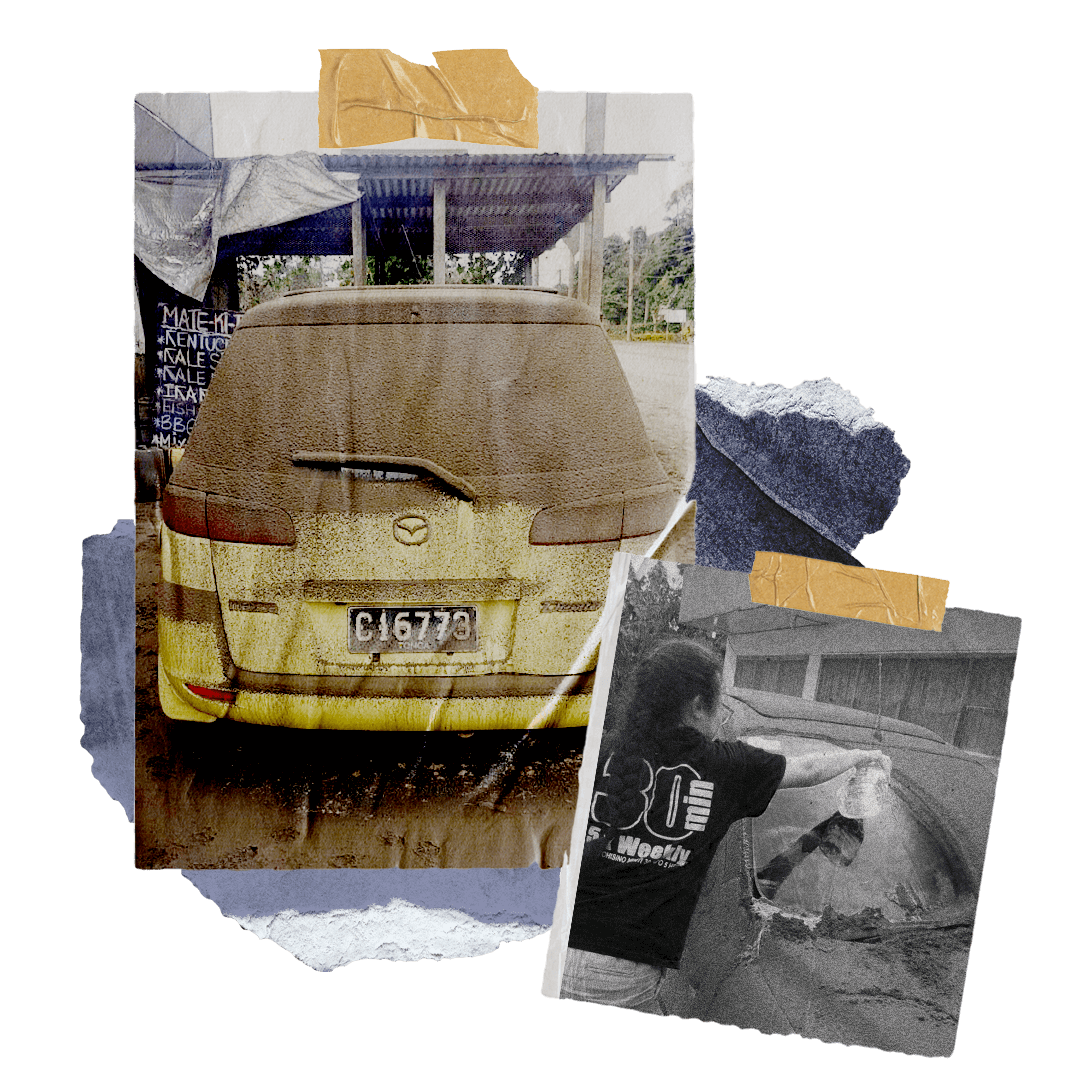
Bracing ourselves for the end
My friend and I thought this might be the end for us. Just before the internet cut, I contacted my mum (who was in New Zealand) to let her know we were evacuating.
In the face of death, God’s peace comforted me. My faith in Jesus was firm and I was not afraid to depart, although I was still afraid of the how! We wondered if a tsunami was on its way or if there would be lava pouring out of the volcano.
As my friend drove to her grandmother’s house, we prayed for peace and protection over the nation, and for people’s salvation.
It took us nearly an hour to arrive at my friend’s grandmother’s, where we spent the night with 18 others, all crammed into one room, huddled on fala (mats). With candles lit, we said family lotu (prayers) and sang hymns until we fell asleep.
The next morning, we woke to find ourselves still alive. Though five people died in the disaster (I lost one friend, too), it was a miracle that the death toll was not higher.
We couldn’t deny God’s protection. Being a Christian nation, the Tonga radio played praise songs, and the Tongan King’s faith-filled and hope-stirring speech urged the nation to honour and thank our God.
At that moment, it was not houses, buildings, or materials that mattered—only that our lives were spared.
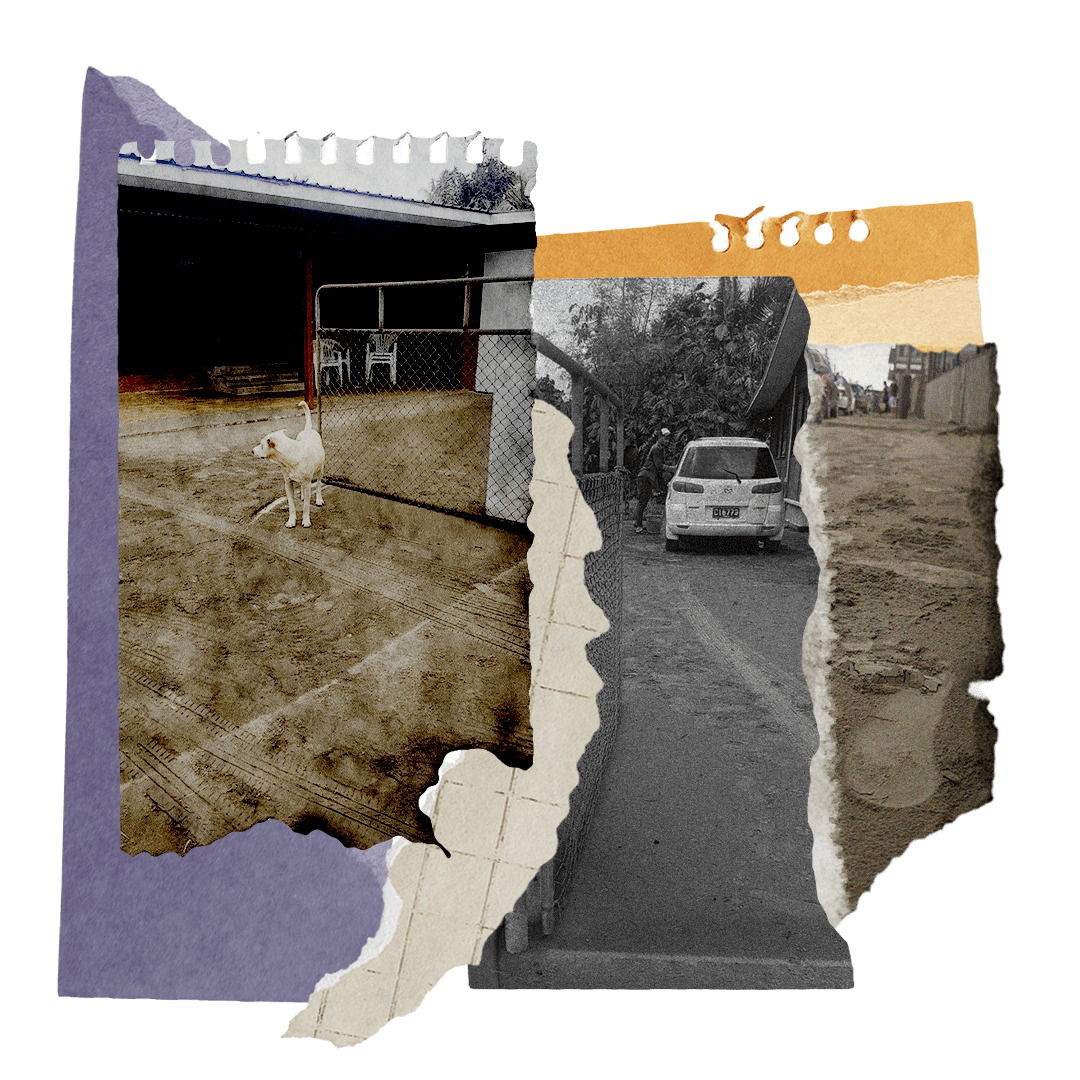
Rising from the ashes
The next few weeks were like a living nightmare. Ash blanketed everything. It laid thick on cars and weighed heavily on the trees. It contaminated our tank water and hung in the air. Aeroplanes carrying aid were unable to land on airstrips which were coated with ash. We relied on clean drinking water from town and wore masks to protect our lungs.
I was too afraid to continue living by myself, so I stayed with a friend. For the first few days, I vomited, unaware that these were symptoms of post-traumatic stress (PTS).
Every morning, panic would set in as I looked out the window into a black world. Seeing our trees and crops dying, and hearing about the people who had lost their homes and loved ones, left me feeling paralysed and overwhelmed.
Starting my day with worship and reading Psalms helped me get through each day. Every morning, I memorised and recited Psalm 23. I found solace in knowing that God is our Good Shepherd, who never leaves His flock unprotected; He attends to their needs and is constantly watching over them. Similarly, Psalm 18 encouraged me to hold onto Jesus, my Living Hope.
1 Thessalonians 5:16-18 was my very practical strategy in coping with the aftermath. Rejoicing that I was alive, giving thanks to God for the aid that finally came, and praying, always praying, in a constant, honest dialogue with my Father. I poured out my anxious thoughts to Him and prayed for families I knew whose homes had been washed away.
As I asked God to fix everything and remove my anxiety, He encouraged me with the story of Jesus calming the storm in Mark 4. Knowing that Jesus was with me in this rocky “boat” gave me peace and comfort; I could rest because He was in control.
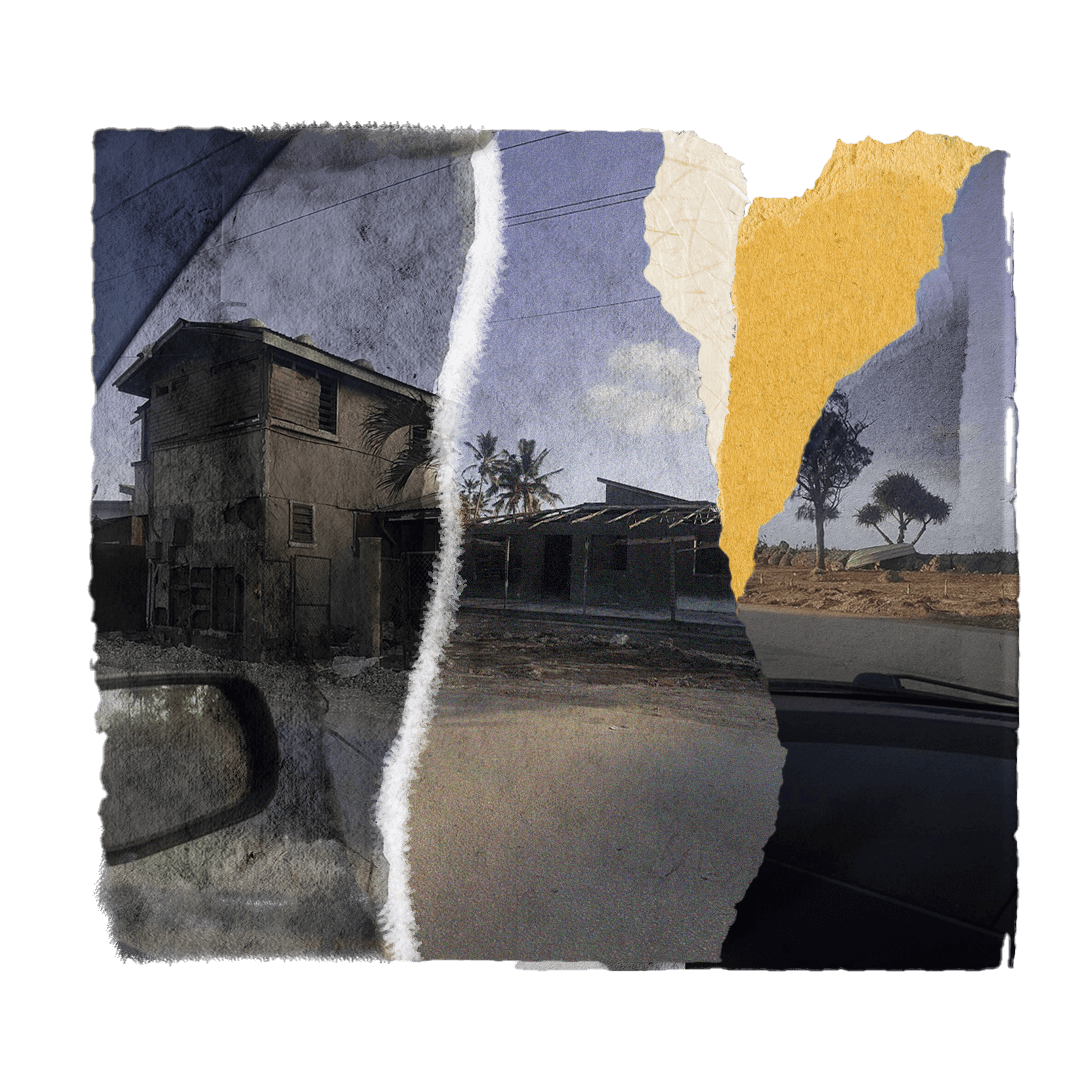
Reconnecting with the rest of the world
After five harrowing days of failing to contact my family in New Zealand, we finally managed to get in touch via satellite services. We cried with relief, and through them, I learnt that the tragedy had made world news.
As my mum told me about the aid coming our way and the world’s response to this disaster, it felt like a balm to my soul. The hearts of other nations had turned towards us, and their generosity gave us hope that everything was going to be okay—that we were not alone.
On 22 January, we gathered for church, just a week after the eruption. The celebration of life and God’s protection was uplifting! Coming together as God’s people and worshipping Him brought profound healing to our souls.
As I reflected on this chaotic period, the Holy Spirit showed me three key truths that I needed to hold onto:
1. I am not in control

We go to sleep every night assuming that the sun will rise in the morning; we take for granted that each breath is a gift from God and that the whole world is held together by His Word (Colossians 1:17).
After the eruption, I saw just how little control (if any!) I have over my life. Yet, instead of making me more fearful about tomorrow, this perspective gave me a newfound freedom and assurance that my life was safely in God’s hands.
We know God does not punish as our sins deserve (Psalm 103:10-12). The volcanic eruption was yet another sign that we inch closer to Jesus’s return (Romans 8:19-22; Matthew 24:7).
These realisations shaped other aspects of my life. For example, I used to worry about the future: “Would I get married? Will I have enough finances to do all I want to do while serving in Tonga?”
While we remain concerned about our jobs, families, studies, these things no longer mentally stress me like they did before. Trusting that I am loved by and valuable to God helps me surrender my concerns to Him (Matthew 10:31).
2. It’s people that truly matter
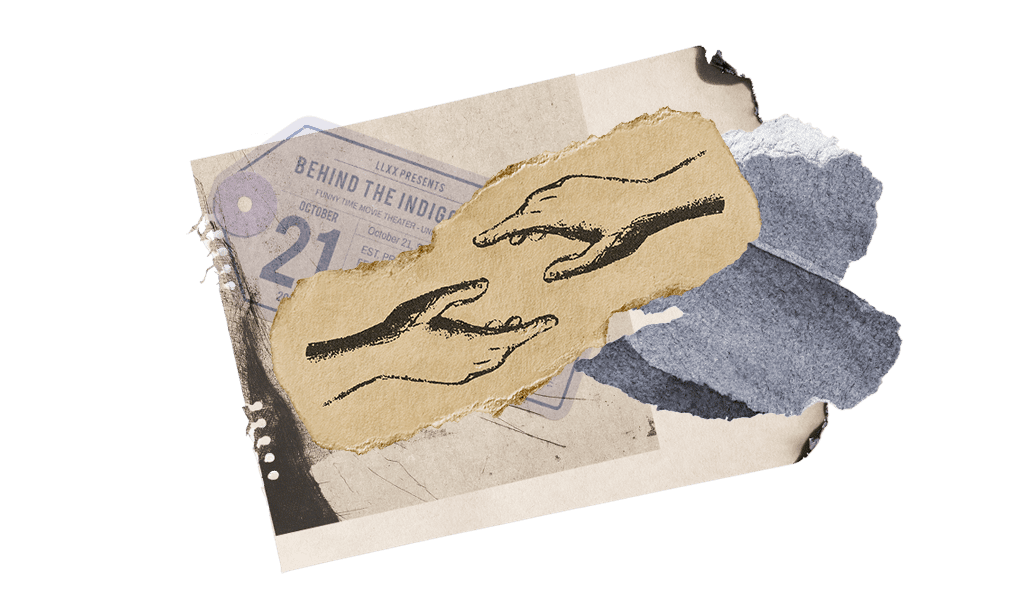
After the eruption, people were crying not so much over the loss of their houses but rather, shedding tears of joy over their safety.
Experiencing God’s sovereign protection made me realise that the most important things are not things, but people! Too often, we think houses, cars and valuables are what makes life good on earth, when realistically these can disappear in an instant.
In Luke 12, Jesus describes a rich man who accumulates earthly treasure without any regard for the future or eternity. God says about him, “You will die this very night. Then who will get everything you worked for? Yes, a person is a fool to store up earthly wealth but not have a rich relationship with God.” (vv.16-21, NLT).
In moments of tragedy, our eyes shift to what truly matters—being in the right relationship with God, that souls may be saved; many could have transitioned to eternity without knowing our Saviour.
Every family I know in Tonga have re-committed their lives to Jesus. I remember contacting friends, family, and flooding social media with messages about the importance of getting our lives right with God, now and for eternity.
Isaiah 55:6 says: “Seek the LORD while you can find him. Call on Him now while He is near.”
3. There is beauty even in the pain
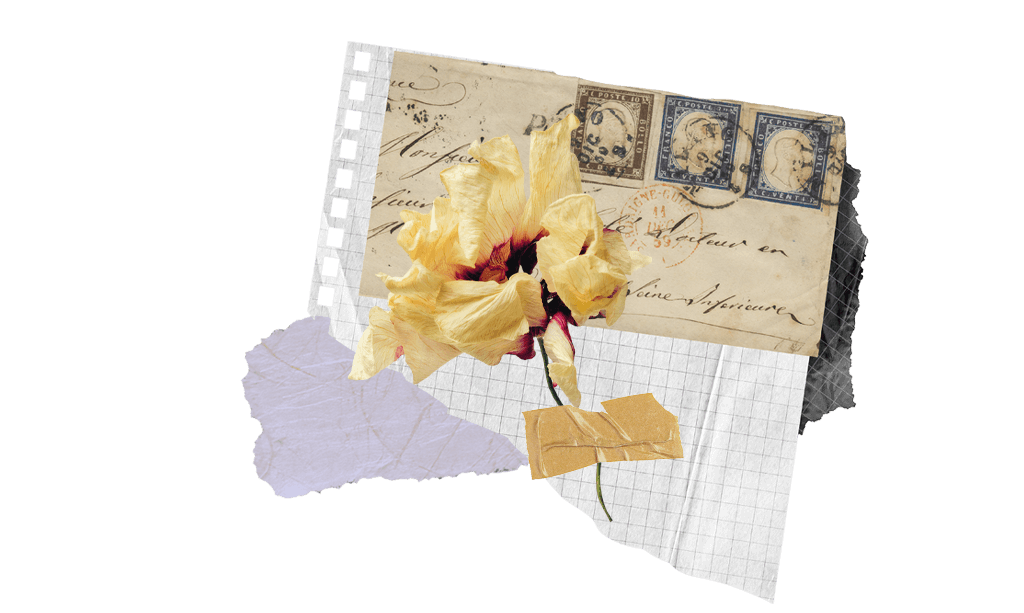
After the eruption, I flew to New Zealand to treat my back pain and stayed there for seven months. During this time, my internal struggles with God were painful. I was laden with doubts, anxiety, and heartbreak from the end of a relationship that I initially believed was God’s plan.
Yet, it was in these moments of pain that I felt close to God. At rock bottom, I found that Jesus was there with me. Over time, the Holy Spirit soothed my anxious thoughts and shifted my perspective heavenward. I was reminded that while we will experience pain and suffering on earth, we will find complete healing, fullness of joy, victory, and peace in the new heaven God promises (Revelation 21:1-4).
In our pain, we are pushed to get up close and personal with Him. There is a tenacity in us that won’t stop until we get answers—the kind of faith that was showcased in Jacob’s wrestle with God (Genesis 32:22-32). We experience God our Rock most tangibly when the rest of our world is shaken; we experience a God who makes beauty from ashes (Isaiah 61:3).
I am now back in Tonga for 2023, and the land is teeming with life again. That said, there is still a journey ahead with new volcanic activity and earthquakes that have triggered tsunami warnings, both bringing back the trauma of last year.
But now, I take life one day at a time by remembering what God has done and taught. The choice to walk in Jesus’s peace and freedom is before me. As said in Galatians 5:1 (TPT): “At last, we have freedom, for Christ has set us free!”

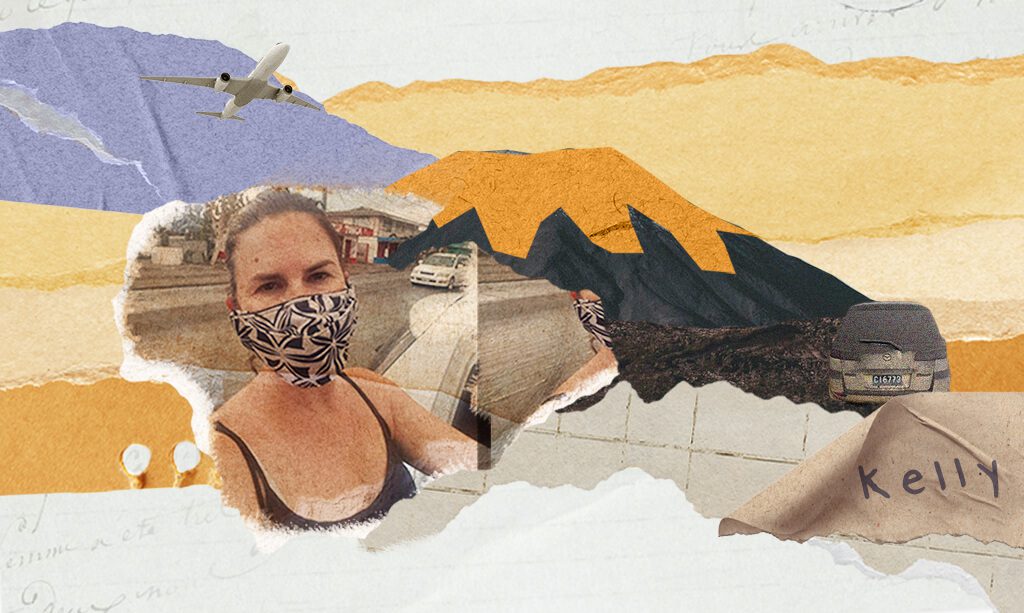
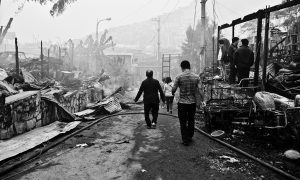
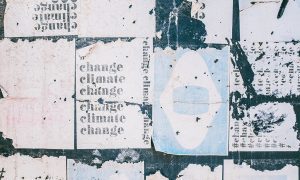


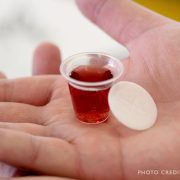
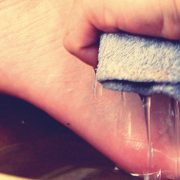




Leave a Reply
Want to join the discussion?Feel free to contribute!